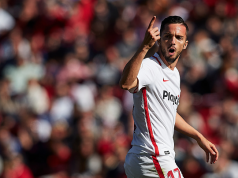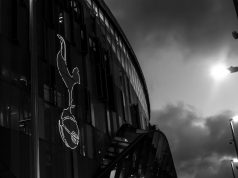Brazilian newspaper O Globo on Sunday featured an interesting interview with Everton star Richarlison.
The striker has spoken several times about the difficult childhood he had in the city of Nova Venécia, and when interviewed in a duplex apartment in Rio, he says he tries to avoid the luxury.
“I had practically nothing in my childhood and, suddenly, I can have almost everything. So I value it, I think about the future,” Richarlison told O Globo.
“I’m not going to buy a big car. I invest in real estate, in other things for the future. Like this apartment here. Mother, father, uncle, grandmother, I already gave everyone their own home. My uncles have a car, my mum likes motorcycles and I bought her one. My sister has three children and I help with their education and health.”
When entering Richarlison’s apartment, O Globo’s team found three men playing video games on the couch. One was Richarlison’s uncle, and two others were childhood friends. Although they now have a good life moving between Brazil and England, not all of his mates had the same luck.
“The friends who played with me now work in supermarkets, others in the fields. Many friends from the street are in prison. I had everything to be a criminal. But I had my uncle advising me, I had Fidel, a coach who was a policeman, telling me that I had talent. Football took me on the right path.”
O Globo writes that Richarlison has been managing to avoid overdoing the gym during his time at Everton, since he’s convinced the club he doesn’t need a lot of added strength.
“The guys there want to be strong. I soon realised how intense the game is, how important the physique is. But what I really invest in is gaining agility. Some defenders have a hard waist, so I can’t lose agility to beat them. What I improved the most was the heading. And the tactical requirement is great. We study the opponents a lot. If the attacker leaves space, doesn’t defend, it’s a goal.”
Regarding his adaptation to England, Richarlison claims he’s never seen it as a problem, despite the difficulties he knows foreign players often have.
“I’m not afraid of anything on the pitch. I do what I love. Fear, I just have of an injury. The difficulty was the cold. But I see players who talk about depression, about adaptation. That was not a problem for me. I was never a kid to stay with the family. I stayed on the street with friends.”
Allan to Everton is no fantasy | We explain why…
Price dropping, Gattuso issues, seen as an Ancelotti man, fresh claims today of offer, Gueye help, Napoli linked with replacements. 👇https://t.co/jmNhoeOeTW #efc #coyb pic.twitter.com/r6VwF8IYHV
— Sport Witness (@Sport_Witness) March 3, 2020























